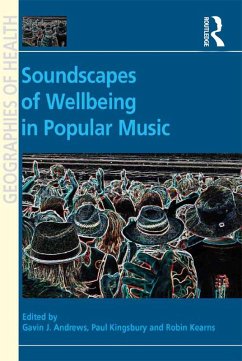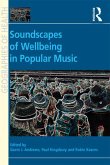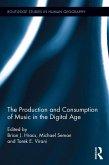Popular music has become increasingly embedded in complex and often contradictory discourses of wellbeing. For instance, some new genres and sub-cultures of popular music are associated with violence, drug-use, and the angst of living, yet simultaneously define the hopes and dreams of millions of young people. At a service level, popular music is increasingly used as a therapeutic modality in holistic medicine, as well as in conventional health care and public health practice. By conceptually and empirically foregrounding place, this book demonstrates how music - whether from particular places, about particular places, or played in particular places " is a crucial component of health and wellbeing.
Dieser Download kann aus rechtlichen Gründen nur mit Rechnungsadresse in A, B, BG, CY, CZ, D, DK, EW, E, FIN, F, GR, HR, H, IRL, I, LT, L, LR, M, NL, PL, P, R, S, SLO, SK ausgeliefert werden.
Hinweis: Dieser Artikel kann nur an eine deutsche Lieferadresse ausgeliefert werden.









